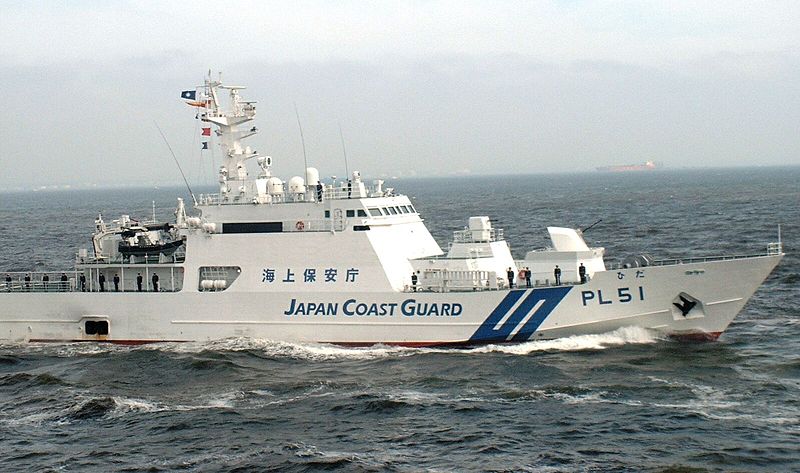ASPI suggests
Posted By The Editors on November 1, 2013 @ 14:30
 [1]Further revelations of US intelligence activity, including tapping of friendly world leaders phones [2], has put Washington’s intelligence community on the defensive. The Economist writes [3]:
[1]Further revelations of US intelligence activity, including tapping of friendly world leaders phones [2], has put Washington’s intelligence community on the defensive. The Economist writes [3]:
On October 29th, realising that the political mood in Washington was, in the words of one security official, ‘turning ugly’, the NSA’s boss, General Keith Alexander, and the director of national intelligence, James Clapper, came out slugging. Giving evidence to a congressional committee, both men vigorously denied that the agency had ‘gone rogue’.
Meanwhile the situation in the East China Sea continues to deteriorate [4]:
The rhetoric between Asia’s two superpowers is becoming more belligerent with China warning that if Japan carries out a threat to shoot down foreign drones, it would be an act of war.
The New York Times Magazine had a fascinating interactive piece [5] on another of China’s territorial standoffs—in this case, with the Philippines in the South China Sea.
Malaysia is planning to establish a Marine corps and naval base [6] close to waters claimed by China, reports defence writer Dzirhan Mahadzir. This is an interesting development in light of Geoff Wade’s Strategist post on potential Chinese military bases in Malaysia [7] (an idea Greg Lopez plays down [8]).
Not irrelevant for this theatre, the US Navy is apparently worrying [9] about its numbers of fast-attack and guided-missile submarines.
Also on the US, Tony Abbott gave a full length interview [10] to the Washington Post. He has been criticised [11] here at home for taking too partisan an approach for an international platform.
The Abbott government has also abandoned [12] the previous government’s Asian Century plans, read ASPI’s Peter Jenning’s take here [13].
Former infantry officer and author Emile Simpson reviews [14] David H. Ucko and Robert Egnell’s new book Counterinsurgency in Crisis: Britain and the challenges of modern warfare on Foreign Policy. Here’s a snippet:
The book’s conclusion does not advance either the retention or jettisoning of counterinsurgency, as other works in this area have done. Rather, a nuanced position is established: There may well be operations possibly involving British forces in the near future that require an understanding of counterinsurgency, but COIN should be properly understood as a pool of operational practice that needs to be applied to the particular context, and accompanied by a political strategy, which COIN is not in itself.
For the strategists, check out this Adam Elkus post [15] on game theory and security over at War on the Rocks. He writes:
Most importantly, choice-theoretic analysis of security is at its heart fundamentally relational. Actors in a game do not make decisions in a vacuum. Take the famous Prisoner’s Dilemma scenario, a game in which two cons must decide whether they will keep silent or rat out their partner. It’s a story about what we think someone else will do and what their hypothetical decision implies for our own choice. As Clausewitz notes in his metaphor of wars as “duel,” it is the strategic interaction that produces the overall outcome.
Image courtesy of Wikimedia Commons [16].
Article printed from The Strategist: https://www.aspistrategist.org.au
URL to article: https://www.aspistrategist.org.au/aspi-suggests-36-2/
URLs in this post:
[1] Image: http://www.aspistrategist.org.au/wp-content/uploads/2013/11/800px-Japan_Coast_Guard_PL51_Hida_2.jpg
[2] tapping of friendly world leaders phones: http://www.economist.com/news/leaders/21588861-america-will-not-and-should-not-stop-spying-clearer-focus-and-better-oversight-are-needed
[3] writes: http://www.economist.com/news/international/21588890-foreign-alarm-about-american-spying-mounting-sound-and-fury-do-not-always-match
[4] continues to deteriorate: http://www.abc.net.au/news/2013-10-28/japan-china-war-of-words-erupts-regional-tensions/5048744
[5] fascinating interactive piece: http://www.nytimes.com/newsgraphics/2013/10/27/south-china-sea/
[6] establish a Marine corps and naval base: http://www.janes.com/article/28438/malaysia-to-establish-marine-corps-naval-base-close-to-james-shoal
[7] potential Chinese military bases in Malaysia: http://www.aspistrategist.org.au/xi-jinping-and-the-sabah-enigma/
[8] plays down: http://www.aspistrategist.org.au/reader-response-chinese-military-bases-in-malaysia/
[9] apparently worrying: http://www.dodbuzz.com/2013/10/25/navy-leaders-warn-of-submarine-shortfall/
[10] interview: http://www.washingtonpost.com/opinions/lally-weymouth-an-interview-with-australia-prime-minister-tony-abbott/2013/10/24/f718e9ea-3cc7-11e3-b6a9-da62c264f40e_story.html
[11] criticised: http://www.smh.com.au/federal-politics/political-news/tony-abbotts-alp-criticism-could-affect-us-links-20131027-2w9lv.html
[12] abandoned: http://www.theaustralian.com.au/national-affairs/policy/asian-century-plans-consigned-to-history/story-e6frg8yo-1226747866681#
[13] here: http://www.aspistrategist.org.au/foreign-policy-pandora-slays-the-dragon/
[14] reviews: http://ricks.foreignpolicy.com/posts/2013/10/22/counterinsurgency_in_crisis_an_objective_assessment_of_the_british_experiences_in_h
[15] Adam Elkus post: http://warontherocks.com/2013/10/do-some-men-want-to-watch-the-world-burn/
[16] Wikimedia Commons: http://en.wikipedia.org/wiki/File:Japan_Coast_Guard_PL51_Hida_2.jpg
Click here to print.